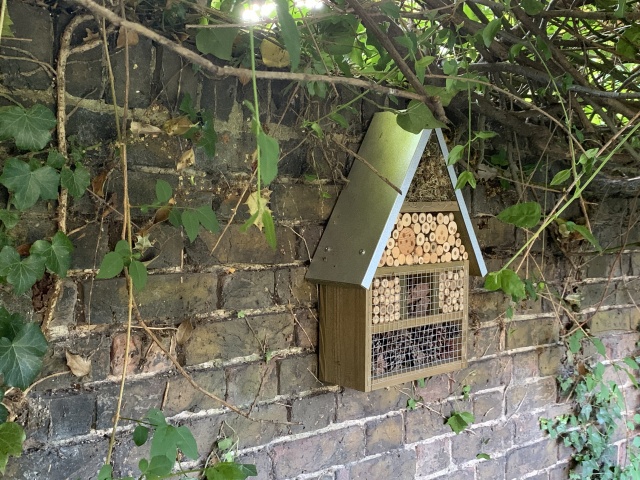The Beneficial Insect Community
WomenTalking is getting involved with their own ‘Bug Hotel’ and inviting the local insects to settle in!
Albert Einstein once said, “Mankind will not survive the honeybees’ disappearance for more than five years.”
Once again, Einstein was right. About a third of our food supply depends on pollination. Bees are essential for the production of fruits and vegetables, and their loss is negatively impacting our food chain.
Attract Beneficial Insects and Bees With an Insect Hotel
At any given time, your garden might contain over 2,000 species of insects. Some of these are pests, the kind you don’t want in your garden because they destroy your flowers and vegetables. But many others are beneficial insects, the kind you want to attract because they work with you to control pests and pollinate flowers.
Insect Hotels Attract Beneficial Insects
Beneficial insects support biodiversity, the foundation for the world’s ecological balance. An insect hotel in your garden will attract these beneficial insects, offering them space where they can propagate and hunker down for the winter. Encouraging biodiversity in the garden helps to increase ecosystem productivity.
Placing an insect hotel in the garden increases the chances that beneficial insects will naturally visit your garden. Also known as bug hotels, bug boxes, and bug houses, these human-made structures offer several benefits. In addition to their decorative qualities, they help supplement the increasing loss of natural habitats.
Natural Pest Control
Welcoming beneficial insects and pollinators into your garden reduces or eliminates the need for pesticides. Poison kills weeds and pesky insects, but poison is not selective: it kills beneficial insects as well.
According to the USDA’s Natural Resources Conservation Service, three-quarters of the world’s flowering plants and roughly 35 percent of the world’s food crops depend on animal pollinators to reproduce, with more than 3,500 species of native bees helping to increase crop yields. By some estimates, one out of every three bites of food we consume depends on animal pollinators like bees, butterflies and moths, birds, bats, beetles, and other insects.
Lilly Light


